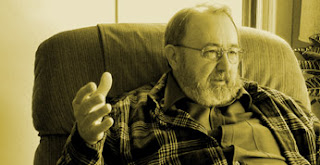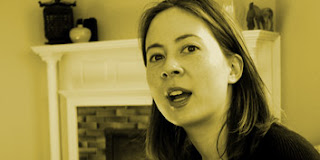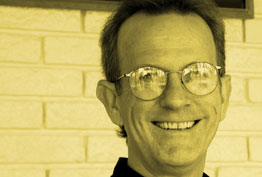155 days or so later, we drove back into the restful and pleasant burg of Bella Vista, AR, the home to our furniture, my wife's parents, and a small house we bought last summer. 5 months to the day that we left to head north toward Kansas and the first October interviews, we eased the dependable, honorable, and lovable Winnie Cooper into the driveway and put it in park one last time. Oh, she didn't know what was coming, and, 2 days after making the decision to let her go, we're a little surprised ourselves.
But as the major traveling for the book has ended - we still have one-off trips to Lubbock, Salt Lake City, and Chicago - we simply no longer need the rolling tin can home on wheels.
We toyed with keeping her. We've talked about storing her, keeping her for later, for next summer when we might want to sprint up to Cape Cod for a week or something. But it's a pricey little item and we'd like to get some money back out of her at a spectacularly good time to be in the RV marketplace. She's a 2004 model, it's spring, it's clean and lovely, loaded with features.
We will never forget her, of course. This trip has been the single grandest journey of our lives. The scope of it continues to amaze us. And for nearly all of it we lived in Winnie, snaking up and down the Rockies, wounded but still protected from the howling rain and wind of an Oregon winter, resting on the desert floor more than 200 feet below sea level in Death Valley, spending the night in a rest area in Mississippi. Oh sure, I'm nostalgic now that the "For Sale" sign is on her, but there were dark moments.
It's a small space to live in. Sure, it's got a fridge, oven, microwave, shower, bathroom, dinette, couch, queen sized bed, closets, and cabinets. But it's not like living in a house where there is space between these things. It's not like in a house where you can actually turn around in the shower, for example. (Some days I washed my front; other days my back.) There's nowhere to get away from the wife (or, the husband, as my wife will tell you). There's no basement, no attic, no corner in which you may go and sob when the confinement gets to be too much. (Yes, I know one can go outside. But I'm so sensitive to temperature changes that it's hardly ever an option - unless I'm smoking a cigar...then it's all right.)
Oh, and the plumbing. I've battled with the notion of this story for a few days, and it's clear to me that my gentle readers don't need many details. But, when living full time in an RV, there is the occasional need (like every 3 f&*%ing days) to empty the tanks, a gray one that holds water from the sinks and shower, and the black one that holds - well - the waste and sewage from the toilet.
See, I knew you were too dainty. Several of you just gasped. One of you put your hand over your eyes, and one just turned away from the screen.
A few days ago I was down in a crouch making the necessary connections to empty our tanks and get on to the next town. It's something we've done more than 50 times, so it's not some great technological challenge. There's a big hose, a big spout, and a big hole in the ground (usually called a dump station - love that terminology). There are two handles down there, one for the black tank and one for the gray, and while emptying the black tank, I could tell there was something wrong. The flow was not satisfying. I didn't hear the pleasant "woosh" that lets you know that matter is running freely.
What was worse was that when I tried to close the black tank, the handle would not close. It would
almost close, but when dealing with raw sewage, almost isn't enough.
As in every thing we've done these past months, my wife and I each have our duties in any particular task. I buy the groceries, but she did all the cooking. I drove a lot more than she did, but nobody could have navigated us better. I held the remote control to our DirecTV system, but she told me which numbers to press. She will hate me for this, and I am sure to suffer punishments unknown, but in this particular job - the emptying of the tanks - my wife's duties are to put things away once I have done the dirty work. Sure, she rinses the hose as well, but you know what? I wouldn't mind running some clear spring water on a hose every once in a while, and then placing the hose in a bin. That sounds like a little slice of heaven, a walk in the park, an ice cream cone on a summer day. Especially to a guy who handles human waste and pulls the black handle!
Anyway, my wife was behind me, waiting with her little water hose when I made an executive decision. Because the waste wouldn't come to me, because the black tank would not empty, I decided to investigate.
Sure, turn away. This may be too rough for you. Maybe you're all a little squeamish. Go back to your pleasant thoughts and rose gardens. Run, if you must, but this was not an option for me.
I unhooked the sewer hose and the rest of the tale is too horrible to tell. Suffice it to say, when the black tank did "loosen" up, there was a mighty roar and a mighty suffering that befell us. Those clothes I was wearing that day are gone, left in a dumpster in a rest area many miles away. Those shoes. My coat. All victims of my hubris, my stupidity, my desire to tempt the RV God Winnebagus.
But you know, I got clean. It took some doing, a lot of soap and Purell. A lot of those little Clorox handi-wipes. I have more clothes. My skin is red and raw from the scrubbing, and most nights now I still wake in fright, still hearing the sound of the explosions, my own girlish screaming, the smell, the horrible realization that it was too late to hook up the hose. Sure, my wife ran a little water over the hose when it was all done, but we felt that maybe this was enough of all that.
It seemed a sign. We were within a day of "home" when Winnie broke my heart.
But I'd do it again. I'd do everything. I'd swing wide of that house we hit in Oregon (go back to November 16, 2003 if you want to relive that), and I'd leave the sewer hose on next time. But I'd do it all again. I just hope I don't have to.
 I made my last stop today, in Bethesda, Maryland, to meet with my MFA advisor, the gifted and gentle Henry Taylor, a man of immense humanity and talent.
I made my last stop today, in Bethesda, Maryland, to meet with my MFA advisor, the gifted and gentle Henry Taylor, a man of immense humanity and talent. We left Logan, Utah in brilliant sunshine on a cold spring morning, and headed east through valleys and passes toward the Colorado border. Before we reached
We left Logan, Utah in brilliant sunshine on a cold spring morning, and headed east through valleys and passes toward the Colorado border. Before we reached Traveling north out of Salt Lake City, we are stunned by the remarkable landscape changes just an hour or so up I-15. We turn east and plunge into a part of the Wasatch range, and when we emerge on the highway to Logan, we are surrounded by deep green valleys, pastures, horses, cows, pretty farm houses. It's like the lushest part of Iowa, but at 5000 feet, and surrounded by snow capped mountains.
Traveling north out of Salt Lake City, we are stunned by the remarkable landscape changes just an hour or so up I-15. We turn east and plunge into a part of the Wasatch range, and when we emerge on the highway to Logan, we are surrounded by deep green valleys, pastures, horses, cows, pretty farm houses. It's like the lushest part of Iowa, but at 5000 feet, and surrounded by snow capped mountains. don't know what was more frightening, the rapid fire barking of Hana, one of Paisley Rekdal's beautiful (large) dogs, or the size and chocolate content of the enormous pastry I was served. Both items took much of my
don't know what was more frightening, the rapid fire barking of Hana, one of Paisley Rekdal's beautiful (large) dogs, or the size and chocolate content of the enormous pastry I was served. Both items took much of my


 William Wenthe, when referring to his move from bucolic Virginia to hardscrabble Lubbock, Texas, calls it geographic shock. The New Jersey native had made a real home in the area in and around Charlottesville during his pursuit of MA and PhD degrees, so had some adjustments to make when arriving in this splendid but isolated panhandle city.
William Wenthe, when referring to his move from bucolic Virginia to hardscrabble Lubbock, Texas, calls it geographic shock. The New Jersey native had made a real home in the area in and around Charlottesville during his pursuit of MA and PhD degrees, so had some adjustments to make when arriving in this splendid but isolated panhandle city. We follow I-55 looking for a state highway, then take it into a regional park where we pick up the first of two dirt roads on our way to Yopo, a tiny town about twenty miles from Kankakee, Illinois. When we pull up, the poet Lars Fad is waiting on a large painted glider. He gives a big wave and heads over to us. He is wearing a striped shirt, long khaki shorts, and flip flops. It is 33 degrees and it is raining like that scene in Year of Living Dangerously.
We follow I-55 looking for a state highway, then take it into a regional park where we pick up the first of two dirt roads on our way to Yopo, a tiny town about twenty miles from Kankakee, Illinois. When we pull up, the poet Lars Fad is waiting on a large painted glider. He gives a big wave and heads over to us. He is wearing a striped shirt, long khaki shorts, and flip flops. It is 33 degrees and it is raining like that scene in Year of Living Dangerously. Karen, a young and brilliant nomadic poet, buzzes me into her apartment in Ukranian Village, a close-knit urban neighborhood just a little north and west of downtown. She tells me she's been here for about six months after more than a year in Hyde Park, a much different part of the city. She tells me Hyde Park is an enclave unto itself, while her new neighborhood is tied to the city in a real way. It's clear which she prefers.
Karen, a young and brilliant nomadic poet, buzzes me into her apartment in Ukranian Village, a close-knit urban neighborhood just a little north and west of downtown. She tells me she's been here for about six months after more than a year in Hyde Park, a much different part of the city. She tells me Hyde Park is an enclave unto itself, while her new neighborhood is tied to the city in a real way. It's clear which she prefers.

 There is one real reason people live in Chicago instead of New York: Lake Michigan. On a pretty Sunday morning, I'm sitting with Mark Strand about ten floors up looking out over Lake Shore Drive, while the 70 degree weather pours in through a bank of open windows. The blinds flutter sometimes, and the sound of weekend construction floats up to us as we talk. From my chair I can see the water and I think about heading over there after the interview to walk alongside the lake, watch the joggers and dogs. Peer up the lakeside all the way to Milwaukee or whatever is north of here.
There is one real reason people live in Chicago instead of New York: Lake Michigan. On a pretty Sunday morning, I'm sitting with Mark Strand about ten floors up looking out over Lake Shore Drive, while the 70 degree weather pours in through a bank of open windows. The blinds flutter sometimes, and the sound of weekend construction floats up to us as we talk. From my chair I can see the water and I think about heading over there after the interview to walk alongside the lake, watch the joggers and dogs. Peer up the lakeside all the way to Milwaukee or whatever is north of here. Alongside highway 71 in Missouri, we pulled off in Butler for a bite to eat. I've been doing this low carb thing for about 9 hours so I was ready to treat myself. We found the Dinner Bell Family Restaurant with an empty parking lot and the cook out back changing his oil. We went in, looked over the menu, and I opted for the Hot Beef sandwich. $3.95. It arrived within 3 minutes, a gigantic gob of mashed potatoes smothered in gravy, and a nicely cut white bread sandwich overflowing with hot beef.
Alongside highway 71 in Missouri, we pulled off in Butler for a bite to eat. I've been doing this low carb thing for about 9 hours so I was ready to treat myself. We found the Dinner Bell Family Restaurant with an empty parking lot and the cook out back changing his oil. We went in, looked over the menu, and I opted for the Hot Beef sandwich. $3.95. It arrived within 3 minutes, a gigantic gob of mashed potatoes smothered in gravy, and a nicely cut white bread sandwich overflowing with hot beef.






























